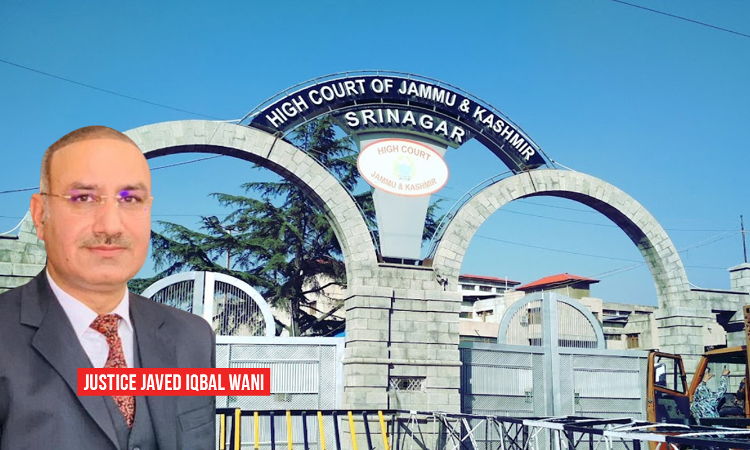- Home
- /
- High Courts
- /
- High Court of J & K and Ladakh
- /
- Revenue Officer Has No Jurisdiction...
Revenue Officer Has No Jurisdiction Over Urban Residential Property Under J&K Land Revenue Act: High Court Quashes Partition Order
Aleem Syeed
27 May 2025 1:15 PM IST
The Jammu & Kashmir High Court has held that urban residential property falls outside the scope of the J&K Land Revenue Act, 1996, and quashed an order passed by a revenue officer attempting to partition such a property.The court was hearing the challenge to the order of District Magistrate wherein it had ordered the partion of the migrant property in favour of respondent which...
The Jammu & Kashmir High Court has held that urban residential property falls outside the scope of the J&K Land Revenue Act, 1996, and quashed an order passed by a revenue officer attempting to partition such a property.
The court was hearing the challenge to the order of District Magistrate wherein it had ordered the partion of the migrant property in favour of respondent which the petitioner claimed was without jurisdiction.
A bench of Justice Javed Iqbal Wani observed that section 105 of the Act empowers a revenue officer for partition of land used for agriculture or related purpose, including structures and trees thereon while excluding sites of buildings in a town or village abadi or land appurtenant thereto.
The court said that in present case the property indisputably is land and a residential house situated in an urban area and, thus, manifestly excluded from the purview of the definition of “land” under Section 3(2) of the Act of 1996 and hence outside the competence and jurisdiction of the Revenue Officer under the act.
The court said that petitioner in this case claimed to be exclusive owner of the property measuring 4.5 kanals by virtue of a will executed by the deceased mother in his favour.
It was noted that the title dispute raised by the petitioner should have either been referred to civil court or addressed through proper inquiry, as envisaged under Section 111-A of the Act.
The court added that the official respondent has acted in a perfunctory manner by overlooking both the crucial aspect of the will as well as the pleading and law applicable in the case by declaring respondent no. 4 as co-owner of the property without addressing the issues raised by petitioner.
The petitioner had also challenged the vires of section 7 (1)(b) of J&K migrant act requiring surrender of possession of migrant property before filing an appeal.
The court with respect to this issue held that challenge to this provision was untenable in law. The court referred to Jagar Nath Bhari v. State wherein it held that the primary objective of the Migrant Act is to safeguard and preserve migrant property, and allowing unauthorized occupants to retain possession while pursuing appeals would defeat the very purpose of the statute.
BACKGROUND
Respondent 4 claimed joint inheritance of property with her siblings under the Migrant Act, alleging encroachment by the petitioner after she migrated from Kashmir. The application was dismissed as the dispute was between co-sharers, not covered under the J&K Migrant Act.
The respondent later filed a supplementary application under the Hindu Succession Act, seeking her share. The petitioner opposing it cited execution of will in his favour. But despite that direction was passed for partition of the said property.
The petitioner challenged this order on grounds of lack of jurisdiction and violation of natural justice.
APPEARANCE
G.A. Lone, Advocate with Mujeeb Andrabi, Advocate For Petitioner
Mohsin Qadri, Sr. AAG for R-1 to 3.R.A. Jan, Sr. Advocate withMs. Humaria Sajad, Advocate For Respondents
Case-Title: Ashok Toshkhani vs UT of J&K
Citation: 2025 LiveLaw (JKL) 203



